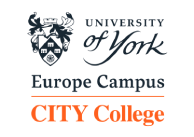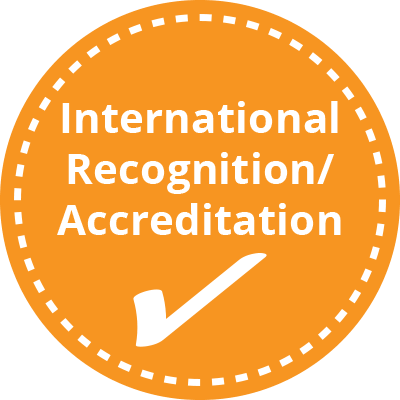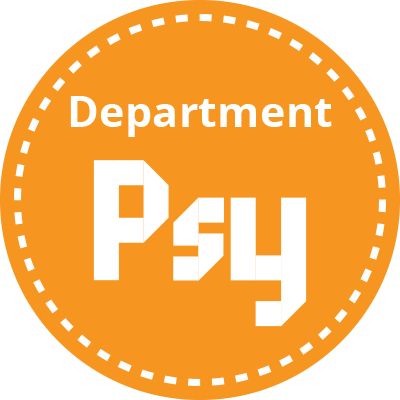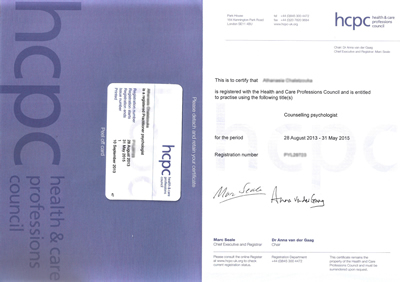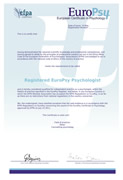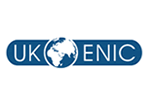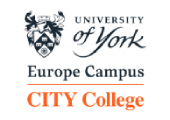Counselling Psychology - MSc


Degree title: The title of Master of Science in Counselling Psychology is awarded directly from the University of York
Duration: 1 year (full time) or 2 years (part time)
Mode of delivery: Classes take place on weekday evenings
Language of instruction: English
Fees (Early Bird Scholarships)
We encourage you to take advantage of our Early Bird Scholarships scheme to save on tuition fees and secure your spot.
For more information, please fill in the form above or call us at (+30) 2310-224026.
The programme
The programme emphasises a reflective practitioner approach which underlines the importance of learning through experience rather than through reading, with the integration of psychological theory, skills and research alongside a highly developed capacity for self reflection and awareness. The core theoretical models of the program are an integration of different therapeutic models and how they are used in the counselling/therapeutic relationship. As such, the course is an integrated programme of study, utilising critical appraisal of psychological and counselling theory, practice and research.
Why choose this course?
-
Degree from one of the world’s top universities, the University of York.
-
Degree recognition. Graduates with a Bachelor in Psychology, who continued their studies to Masters level and have been awarded our MSc in Counselling Psychology,along with adequate supervised practical experience in a related field , can apply for license to the Health and Care Professions Council – HCPC through the International route. Applications to the HCPC are examined on an individual case, thus registration is not automatic but subject to the applicant meeting all the conditions set by the HCPC*.
-
Excellent career prospects. Graduates may pursue a career as Counsellors in hospitals, schools, business, rehabilitations centres, kindergartens, private practice etc.
-
Follows the Reflective Approach: The course places considerable emphasis on the reflective practitioner approach, which underlines the importance of learning through reflecting on experience acquired rather than through reading.
-
Academic research. The course places strong emphasis on academic research.
-
Experiential learning: The taught part of the programme places particular focus on experiential learning.
-
It concentrates on the basic techniques from the three basic counselling approaches: Psychodynamic, Cognitive-Behavioural and Humanistic.
-
The assessment is based on experiential activities and use of reflective journals.
-
Personal therapy for students for free.
- A pathway to a successful career in Europe and abroad.
* For more information regarding the registration procedure please visit HCPC's official website.
Sample of HCPC Certificate (PDF)
More reasons why:
-
Supportive learning environment with a wide range of support services available to students.
-
Free participation in sports and clubs activities.
-
Events with well-recognised psychologists. Students attend events, seminars and workshops by psychologists who share their expertise.
- Our state of the art library, the Information and Learning Commons (ILC) fully supports our students’ study experience.
- Applied Counselling Psychology
- Counselling Children and Adolescents
- Psychopathology
- Research Methods in Counselling Psychology
- Introduction to Research Methods in Counselling Psychology
- Current Paradigms in Counselling and Psychotherapy
- Personal and Professional Development
- Counselling Skills
- Dissertation
Applied Counselling Psychology
The unit examines a number of theories and concepts in the counseling field and demonstrates their application using case examples. A broad spectrum of concepts are introduced, such as health promotion and prevention, education counselling, counselling for trauma and abuse. Students are provided with a case example for every concept that reflects the concept being taught. Students are also introduced to issues and debates that are pertinent to the topic. ![]()
Counselling Children and Adolescents
This module examines key theoretical concepts, developmental psychopathology and chronic illness throughout childhood and adolescence period. Equal emphasis will be given on theory and practice and on exploring the inextricable link of predisposed tendencies and contextual environment such as early life experiences, family etc. on child developmental issues as well as risk factors, bonds with peers, intra-family conflicts and pedagogic system on adolescents. Important topics in the field of counselling children and adolescents such as chronic illness, Child abuse/Child protection/Safeguarding, marginalization, grief & bereavement, bulling as well as multicultural awareness and sensitivity, ethical and cultural considerations will be explored and discussed. In addition, students will get familiarized with the DSM-5 latest developments, Power and Threat Meaning Framework (PTMF), and with the major interventions strategies and their theoretical underpinnings as applied to individual counseling and psychotherapy with children and adolescents with regard to their implications for case conceptualization and treatment planning.
There will be a strong experiential component throughout, which will focus on exposure to the basic play techniques, various psychological approaches and interventions and engagement in practical exercises for skills development within the context of an ethical and diversity-sensitive practice. Students will also apply skills introduced in class through role-plays with classmates and will be responsible for presenting an ongoing case throughout the course that will foster critical thinking and highlight both the challenges and their growth as professional counsellors.
Methods of learning include a combination of lectures, didactic instruction, discussion, individual and group experiential exercises, video clips, and role-play. Lectures are complemented with case study discussions in order to allow students to apply theoretical knowledge to the critical evaluation of cases. ![]()
Psychopathology
This module provides a fresh and reflective perspective on the clinical applicability and recent developments of the DSM-V, ICD-11 and the Power and Threat Meaning Framework (PTMF) as the current tools. The course bridges theory and practice to advance skills and knowledge in a broad spectrum of psychopathological conditions and on designing a roadmap to clinical diagnosis. This will cover step by step the diagnostic principles and beyond diagnoses in order to be able to identify signs and syndromes, construct differential diagnosis, work on decision tree to select most likely provisional diagnosis and recognize comorbidity (simultaneous presentation of two or more disorders). Understand according to the Power and Threat Meaning Framework, the meaning and impact of power and threat on someone’s psychological profile Emphasis will be on some of the most critical issues of the diagnostic classification system, such as DSM construct validity versus clinical utility, medicalization and diagnostic inflation, links of diagnosis and therapeutic pathways and research practice- gap with the aim to increase students’ awareness and provoke critical thinking. Throughout the unit students will engage in an ongoing review on the most recent scientific research literature and evidence-based assessments and treatments for the range of disorders considered, as well as precipitating & resilience factors, prevalence & incidence, prognosis as well as controversies and overlapping symptomatology with other disorders, context of one’s ill health, change of someone’s Health/ill health and cultural/socioeconomic factors. ![]()
Research Methods in Counselling Psychology
This module entails the practice of research methods in counselling psychology with particular attention to the strengths and weaknesses of both quantitative and qualitative methodologies. The course is organised along two dimensions: Five sessions will be dedicated to qualitative, and five to quantitative methods and analyses. The course will be based on workshops by using specific examples and/or data collected by the students. The aim is for students to be able to comprehend and critically analyze relevant research designs as well as to make appropriate methodological decisions and carry out independent research. The course will build on knowledge acquired in CPS6707 (Introduction to Research Methods in Counselling Psychology) and will entail applied research in various fields related to counselling psychology. ![]()
Introduction to Research Methods in Counselling Psychology
This module covers in detail the practice of research methods in their field of study, with particular attention to the opportunities and challenges that researchers face in applying the methods of science to the study of human behaviour. A great emphasis is also given to the ethical issues in research methods. Students will be introduced to main approaches (methodology) in qualitative research and their application to student’s field of study. Emphasis will be given to qualitative research methods like interviews, focus groups, participant observations and fieldwork notes. In the second part of the module , students will explore the various designs that are used in quantitative research (e.g., experimental and quasi experimental design, correlational design, surveys). They will learn how to evaluate patients’ or research participants’ scores on standardized questionnaires and they will become familiar with developing research questions, formulating hypotheses, and selecting participants and measures for a study. In general, students will be advised on how to select the most suitable methodological approach (qualitative or quantitative) to their problem, how to design their study, and how to proceed with data collection and, analysis, as well as with the discussion of their findings. Finally, students will discuss ethics, and reliability and validity in research. ![]()
Current paradigms in Counselling and Psychotherapy
This unit will provide an overview of the central concepts and techniques of the main schools of counselling and will also demonstrate how they apply in practice. It will equip students with the necessary knowledge to evaluate the range of different counselling approaches to different psychological problems as well as the ability to synthesize these approaches in relation to the particular psychological problems. Some examples of counselling approaches that would be presented is the client-centred, existential, cognitive analytic, family, systemic, gestalt and group therapy. ![]()
Personal and Professional Development
The unit introduces students to the main issues in personal and professional development, such as developing strategies for maintaining effectiveness in the face of work pressures, identifying the requirements of a personal support system and the personal dimension of professional competence. This will be enhanced through a combination of teaching and learning methods and assessment components as well (i.e. the use of the personal learning journal which will facilitate the development of helping relationship). It is important that students will be encouraged to establish a commitment to and demonstrate non-discriminatory practice and cross-cultural counselling sensitivity. ![]()
Counselling Skills
The unit introduces students to the basic counselling skills. It covers the main skills employed in the process of counselling, such as listening, reflecting challenging, crisis management etc. The unit focuses on the theoretical assumptions and therapeutic aims that underpin the use of specific skills as well as on the practical use of them. It also encourages critical and reflexive engagement with the use of counselling skills and their effects on the client and the client-counsellor relationship. ![]()
Dissertation
The dissertation will give students the opportunity to investigate using empirical research a topic of particular interest to them within the area of counselling or any other area of psychology, as long as it has clear implications for counselling psychology. Members of staff may offer initial ideas for research project work, but students are encouraged to develop their own ideas, and they are expected to carry out the research themselves, although assistance is given, as appropriate, with equipment, statistical analyses, or other technical support. The completed project is presented as a typed dissertation of approximately 15,000 words. ![]()
Entry requirements
View the application and admission requirements of the programme.
How to apply
If you wish to apply for this programme you may view details of the application process.
Any questions?
If you'd like to know more about this programme, contact our Admissions Team at
admissions
The Psychology Department of CITY College, University of York Europe Campus has excellent reputation due to the high quality of teaching and research. Our academic staff is strongly committed to excellence in research and in teaching at both undergraduate and postgraduate level. Teaching is informed by the latest scientific research and cultivates development of critical thinking, self-development, and academic and professional ethos. Most of the academic staff hold a PhD degree, have intensive research activity and significant professional experience.
More about the Psychology Department
Research at the Psychology Department
Recognition and Careers
Accreditation and Recognition
CITY College is strongly committed to quality education and academic excellence. It is officially accredited and recognised by top international accreditation bodies. Read more
Degree and formal qualifications
The degree and formal qualifications our graduates receive.
For Greek graduates only: Recognition of degrees
Career opportunities
Graduates of the MSc in Counselling Psychology programme may pursue careers as psychologists, counsellors in hospitals, community centres, schools and businesses, therapists and more.
Career, Employability and Enterprise Centre
The Career, Employability and Enterprise Centre, focuses on helping students to set attainable career goals. It offers advice on CVs and cover letters, and on how to effectively handle job interviews. Through career fairs, and different internship programmes, the department aims at constantly bringing students in contact with prospective employers.
Every spring we organize the Annual Career Fair presenting with an opportunity to get a first feel of job seeking. During the event students and alumni have interview opportunities with corporate recruiters and present their skills and abilities to potential employers. Large companies, organisations and multinationals from different industries across S.E. Europe participate every year in our Career Fair and offer employment and internship opportunities to our students and graduates.
More about our Career Services.
Contact the Career, Employability and Enterprise Centre at careers@york.citycollege.eu
Our Graduates of Bachelor in Psychology who continued their studies to Masters level and have been awarded our MSc in Counselling Psychology (along with adequate practical experience in a related field) or our MA in Counselling Psychology, can apply for registration to the Health and Care Professions Council – HCPC through the International route. Applications to the HCPC are examined on an individual case, thus registration is not automatic but subject to the applicant meeting all the conditions set by the HCPC (i.e. training, health and character of the applicant). Graduates may also acquire the Europsy certificate in Psychology, by the European Federation of Psychologists Associations (EFPA).
For more information regarding the registration procedure please visit HCPC's official website.
Extensively experienced and highly qualified, all staff members are committed to delivering our programmes in line with the UK standards of quality and at the same time they facilitate and sustain a critical engagement, with an insight and a broader perspective incorporated in all learning, teaching and assessment methods.

“I am really proud to be part of the particular team of people. Highly skilled and with diverse specialties they are primarily focused on our students and their development. With an authentic interest in people and an inclusive attitude, we can make all of our students succeed and thrive in any highly demanding environment.”
Dr. Suzie Savvidou
Head of the Psychology Department
The academic staff & administration staff of the Psychology Department
